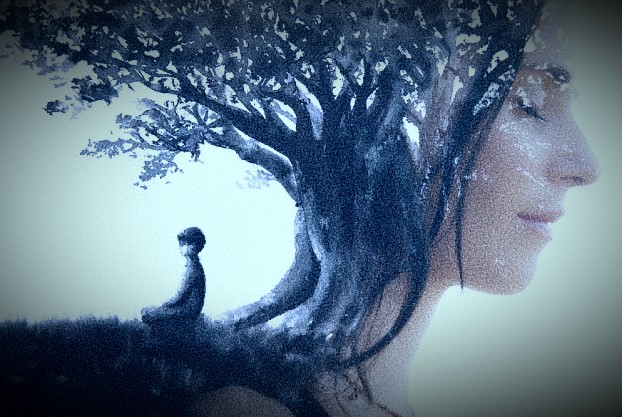In India, several factors contribute to childhood trauma, including poverty, lack of education, child labor, child marriage, domestic violence, abuse, and neglect. Children living in poverty-stricken areas are more likely to experience trauma, as they may face physical and emotional abuse, neglect, and harsh living conditions. Lack of education can also contribute to childhood trauma, as it can lead to children being subjected to child labor or child marriage, which can result in physical, emotional, and sexual abuse.
Domestic violence can also result in childhood trauma, as children who witness violence in the home are more likely to experience emotional and psychological harm. Furthermore, abuse and neglect can also contribute to childhood trauma, as children who are subjected to physical, emotional, or sexual abuse can suffer lasting harm to their mental and physical health.
Childhood trauma can have long-lasting effects on an individual's mental health, leading to issues like anxiety, depression, and other behavioral problems. However, with the help of therapy techniques in childhood trauma counselling, healing from trauma is possible.
The first step in healing from childhood trauma is often recognized that it has occurred. This may involve acknowledging past experiences that were traumatic and exploring the impact they have had on your life. It is important to remember that everyone's experience of trauma is unique and that there is no right or wrong way to feel.
It is important to look at yourself compassionately and to avoid self-blame or self-criticism. This can involve engaging in self-reflection and self-care practices, such as journaling, mindfulness, and exercise. By approaching your healing journey with compassion, you can build a strong foundation for growth and healing.
Furthermore, therapy can be a powerful tool for healing from childhood trauma. Mental health organizations like Another Light Counselling aims to provide trained therapists to work with clients in a supportive and non-judgmental environment and help them achieve their goals for healing and growth. At Another Light Counselling, the counselors are trained to understand the impact of early life experiences, socio-political environment, social support systems, traumatic events, and more on a person's mental health. They acknowledge and validate the unique experiences and struggles of their clients. Instead of focusing solely on "curing" their patients, the counseling sessions emphasize providing support and understanding.
They use a range of therapy techniques for healing childhood trauma, including EMDR (Eye Movement Desensitization and Reprocessing), IFS (Internal Family Systems), and Compassionate Inquiry. These techniques are designed to help individuals process their trauma and develop a greater sense of self-awareness and self-compassion.
Nurturing yourself is a critical component of healing from childhood trauma. This may involve practicing self-care, engaging in hobbies and interests, and developing supportive relationships with friends and family. It is important to focus on activities and people that bring you joy and comfort and to prioritize your physical, emotional, and mental well-being.
Let’s explore some effective therapy techniques and trauma counselling methods for healing childhood trauma.
- Cognitive Behavioral Therapy (CBT): CBT is a popular therapy technique that focuses on changing negative thought patterns and behaviors. It helps individuals identify and challenge their limiting beliefs, which can be rooted in childhood trauma. CBT helps individuals understand how their thoughts and behaviors are impacting their current life and offer tools to help them change them.
- Eye Movement Desensitization and Reprocessing (EMDR): EMDR is a therapy technique that uses bilateral stimulation, such as eye movements or tapping, to help individuals process traumatic memories. This therapy technique for childhood trauma has been shown to be effective in reducing symptoms of PTSD and helping individuals heal.
- Trauma-Focused Cognitive Behavioral Therapy (TF-CBT): TF-CBT is a specialized form of CBT that is specifically designed for individuals who have experienced childhood trauma. It helps individuals process traumatic memories and develop coping strategies for managing triggers and flashbacks.
- Play Therapy: Play therapy is a therapy technique that uses play to help children process their emotions and experiences. Children can use play to express their feelings, work through traumatic memories, and develop a sense of control and mastery over their experiences. This can be an effective way for children to heal from childhood trauma.
In addition to therapy techniques, some common forms of trauma counselling include:
- Group therapy: Group therapy allows individuals to connect with others who have experienced similar traumas. It provides a supportive environment where individuals can share their experiences, offers encouragement, and learn coping strategies.
- Family therapy: Family therapy involves working with family members to help them understand and support the individual who has experienced childhood trauma. It can help improve communication and relationships within the family and provide a safe and supportive environment for healing.
- Individual therapy: Individual therapy in trauma counselling provides a one-on-one setting for individuals to work with a therapist on their specific experiences and needs. It allows individuals to work at their own pace and focus on their unique healing journey.
Neglecting to address and heal from childhood trauma can lead to a range of problems that can persist into adulthood.
One of the key problems that arise from neglecting childhood trauma is the development of mental health issues. Childhood trauma can increase the risk of developing conditions such as depression, anxiety, and post-traumatic stress disorder (PTSD). Without proper treatment and support, these mental health issues can become chronic and interfere with an individual's daily life.
Another problem that can arise from neglecting childhood trauma is difficulty in forming and maintaining healthy relationships. Childhood trauma can impact an individual's ability to trust others, leading to relationship problems in adulthood. For example, an individual who has experienced childhood trauma may have difficulty forming close bonds and may struggle with attachment issues.

